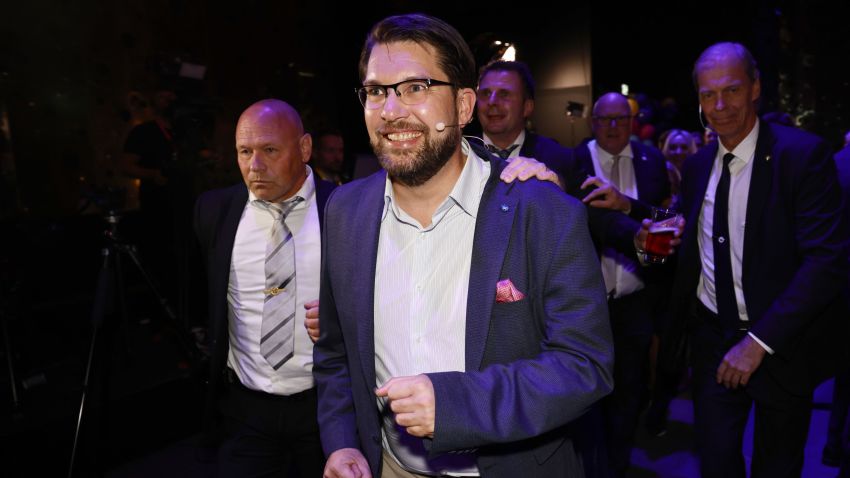European Commission President Ursula von der Leyen delivered her annual State of the European Union speech to the EU Parliament this week, where she spoke of the union’s newfound solidarity and reinvigoration following the outbreak of war in Ukraine. But her message of unity in Strasbourg appears to be undercut by developments across the bloc, including in Stockholm. The far-right Sweden Democrats made solid gains in Sunday’s general election that could now see it become the largest party on the right, providing at the very least parliamentary support to a right-wing governing coalition.
It took three days after the votes were cast to get a final result in the tight election. But absent any changes to the tally in an almost-certain recount, the right-wing bloc consisting of the Sweden Democrats, two center-right parties and a conservative party has finished with three more seats than the coalition led by the center-left Social Democrats, which has governed Sweden since 2014 and dominated the country’s politics for nearly a century. But unlike the case of other right-wing parties across Europe, the Sweden Democrats would be in a much stronger position if a governing coalition is successfully formed, having finished in second place just behind the Social Democrats in terms of votes cast for a single party.
The Sweden Democrats’ party leader, Jimmie Akesson, is unlikely to become prime minister as he appears not to have the support of all four parties in the right-wing bloc. Instead, Ulf Kristersson, the leader of the center-right Moderates, is considered to be the frontrunner for the position. But his path to the premiership also appears to be anything but straightforward. The Liberals, one of the four parties in the right-wing bloc, have suggested they will not be part of any governing coalition that includes the Sweden Democrats. It is possible, however, that they might drop their objections in exchange for ministerial portfolios during government formation talks. If they don’t Kristersson would have to convince the Sweden Democrats to support his coalition from outside the government, probably in return for key policy concessions.

